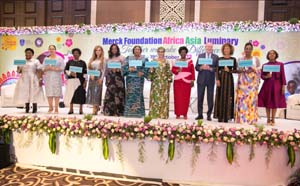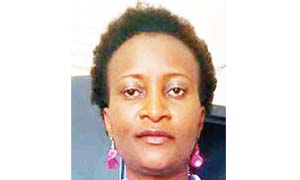INFERTILITY is a medical condition in which the reproductive system of a man or woman fails to achieve a pregnancy after a period of one year or longer of unprotected sex.
The causes of infertility are many but, in both the male and female reproductive system, this can include ovulatory disorders, endometriosis, low sperm count or low testosterone.
Other causes of infertility are environmental factors such as too much exposure to some heavy and poor lifestyles such as smoking as well as being overweight or underweight.
Though infertility can be treated depending on the cause, it has not been possible to explain its causes in some individuals.
Women in Africa shoulder the highest infertility consequences because marriage places high value on children and those who are infertile are highly stigmatised.
Interestingly, research shows that one third of the factors is male, one third is female while the last is a combination of both male and female infertility.
It is for this reason that during a media training, health experts implored the media to raise awareness about infertility as this is one of the social issues people are dealing with in their homes.
The training, which was held last week during the 10th Merck Foundation Africa-Asia luminary in India, urged the media to use their pens and voices about myths, taboos and stigmatisation of infertility among couples.
Thetraining, which was also addressed by eminent media personalities, is part of a Merck Foundation community awareness programme organised to emphasise the important role the media plays in influencingsociety.
Health experts said there was a need for society to be aware of the reality of infertility as a reproductive health problem and seek medical attention early.
Unfortunately, the impact of infertility has been manifested through gender-based violence (GBV) whose consequences are psychological, social and physical suffering.

Merck Foundation is aware that many women suffer stigmatisation and GBV, hence the need to create a cultural shift with the aim of breaking the stigma around infertility.
The experts observed that educating and raising awareness was important because it reflected the society, hence the need to remove the secrecy that comes as a result of infertility.
In addition, the experts said there was need to amplify the voice of people that are talking about social issues such as infertility in our communities.
‘‘Because of the patriarchal society that we leave in, men are usually the decision makers in the home but Merck Foundation is proud to break the infertility stigma among women.
“All women must have a voice when it comes to making decisions about their reproductive health matters. It is unfortunate that even when partners have problems of fertility affecting them, women still remain silent,’’ one expert said.
Women with infertility problems are twice as vulnerable to violence, posing a significant threat to their physical and mental wellbeing.
During the training, the experts also looked at the importance of the media in identifying the message carriers in communities as these play an important role in addressing social issues and breaking the silence.
Similarly, Merck Foundation believes that the media can break the silence by identifying people who champion the cause of social issues in communities.
And Merck Foundation chief executive officer Rasha Kelej said the foundation would continue to address a number of social challenges that affected communities.
She said infertility was one social problem that many women in Africa and Asia had continued to face thus, the campaign by Merck Foundation.
‘‘Through encouraging many men and women to learn that they are not alone in their struggles and with that in mind, we can break the silence in our community,’’ Dr Kelej observed.
In addition, she said Merck Foundation was raising awareness on male infertility and infertility prevention through the Merck More than a Father Campaign.
Merck Foundation is also supporting girl child education, women empowerment, ending child marriage and stopping GBV.
Merck Foundation also recognised the importance of the Tata Memorial Centre of India, one of the institutions training doctors in fertility specialists and other critical underserved specialities.
The10th edition of the Merck Foundation Africa Asia Luminary 2023, held in partnership with Tata Memorial Centre and various government departments, brought together prominent figures from across the globe to address critical healthcare issues and celebrate a decade of impactful initiatives.
The hybrid annual conference was held in Mumbai, India, and brought together first ladies from across Africa who are partners of Merck foundation to discuss strategies of breaking infertility stigma and supporting girl education.
For comments, jessiengm@gmail.com stronger together on fb







